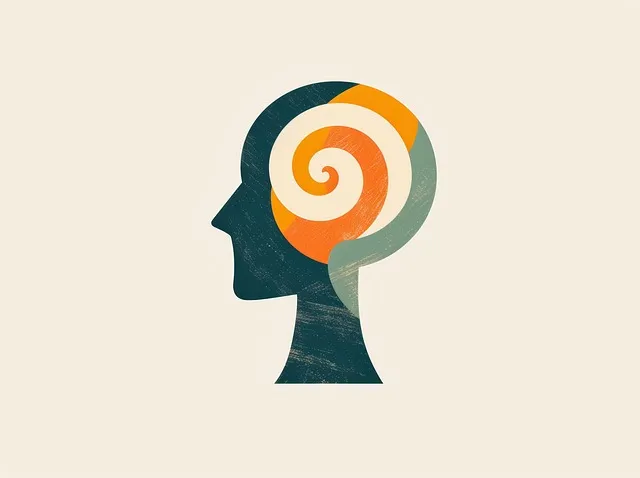Mindfulness meditation, accessible via apps like Kaiser Centennial's mental health services, is an effective way to enhance mental wellness and build resilience. By practicing present-moment awareness without judgment, individuals can manage stress, reduce anxiety, and improve overall well-being. To begin, find a quiet space, maintain consistent daily times for short sessions, focus on your breath, and use guided meditations from online platforms. Overcome challenges by accepting thoughts without judgment and integrating mindfulness into daily life. Kaiser Centennial offers valuable support through mental health services, including mindfulness training and communities for encouragement during mental health journeys.
“Unwind your mind and embrace tranquility with our comprehensive guide to mindfulness meditation. This article is your map to navigating the practice, offering insights into understanding its benefits and techniques. We explore accessible paths to enhancing mental well-being by leveraging resources like Kaiser Centennial for healthcare services.
Learn practical tips to establish a consistent meditation routine, overcome challenges, and unlock the power of mindfulness. Discover how you can transform your mental health journey with simple steps, ensuring a calmer and more balanced life.”
- Understanding Mindfulness Meditation: A Comprehensive Guide
- Accessing Mental Health Services through Kaiser Centennial: Steps to Take
- Creating a Successful Meditation Routine: Tips and Techniques
- Overcoming Common Challenges in Mindfulness Practice
Understanding Mindfulness Meditation: A Comprehensive Guide

Mindfulness meditation is a powerful tool for enhancing mental wellness and building resilience. It involves focusing your attention on the present moment without judgment, allowing you to cultivate a deeper understanding of your thoughts and emotions. By practicing mindfulness, you can learn to observe rather than react to stressful situations, thereby preventing burnout and promoting overall mental health.
To get started with mindfulness meditation, consider following a structured guide or using apps designed for this purpose. One such service is Kaiser Centennial, which offers comprehensive mental health services including mindfulness training. Through regular practice, you’ll gain the ability to calm your mind, reduce anxiety, and improve your overall sense of well-being. Additionally, maintaining a mental wellness journal alongside your meditation can provide valuable insights and serve as a tool for tracking your progress in building resilience.
Accessing Mental Health Services through Kaiser Centennial: Steps to Take

Accessing mental health services through Kaiser Centennial can be a significant step towards emotional healing and well-being. The first step is to understand your coverage by reviewing your insurance plan details. Kaiser Centennial offers comprehensive mental health benefits, including therapy sessions, counseling, and support groups—all designed to facilitate emotional healing processes. Familiarize yourself with the network of healthcare providers within the Kaiser system to find a therapist or counselor who aligns with your needs.
Once you’ve reviewed your coverage, initiate the process by contacting Kaiser Centennial’s member services to inquire about mental health resources and referrals. They can guide you through the steps, which may include scheduling an initial consultation with a primary care physician or directly connecting you with specialized mental health professionals. Incorporating mindfulness meditation as part of your self-care routine alongside professional support can enhance coping mechanisms and empathy building strategies, ultimately supporting your overall mental health journey.
Creating a Successful Meditation Routine: Tips and Techniques

Starting a mindfulness meditation practice can seem daunting, but with a few simple tips, you can create a successful routine that enhances your mental health and overall well-being. Firstly, find a quiet space where you won’t be disturbed; this could be a dedicated corner of your home or even a peaceful spot in nature. Consistency is key; aim to meditate at the same time each day to train your mind and establish a habit. Begin with short sessions, around 5–10 minutes, and gradually increase the duration as you become more comfortable.
To enhance your practice, consider incorporating specific techniques. Focus on your breath, counting each inhale and exhale. This simple act anchors you in the present moment and cultivates emotional regulation. Additionally, explore guided meditations, which can be easily accessed through online platforms or apps, offering a supportive framework for beginners. Remember, mindfulness is a skill that develops over time; be patient with yourself and enjoy the process of improving self-esteem and stress reduction methods.
Overcoming Common Challenges in Mindfulness Practice

Overcoming Common Challenges in Mindfulness Practice
Many people find mindfulness meditation a valuable tool for improving mental well-being, but it’s not without its hurdles. A significant challenge is combating the natural tendency to judge or analyze one’s thoughts and experiences. This internal critic can discourage consistent practice, as individuals may feel their minds are not “good enough.” It’s essential to remember that mindfulness isn’t about stopping thoughts but rather observing them with curiosity and non-judgment. Through patience and gentle self-compassion, one can learn to let thoughts come and go without attachment, fostering a more peaceful mental state.
Another aspect to consider is managing expectations. Mindfulness isn’t an instant fix; it requires regular commitment and practice. Individuals should be mindful of societal pressures and the potential for unrealistic goals, which might lead to frustration. The key lies in embracing the process, starting with small, manageable sessions, and gradually increasing duration. By integrating mindfulness into daily routines, such as while commuting or during meal breaks, one can consistently build this skill without feeling overwhelmed. Additionally, seeking support from mental health professionals or joining communities focused on mindfulness can provide valuable guidance and encouragement, especially when navigating challenging life situations or managing co-occurring mental health conditions, like those that might be addressed through Kaiser Centennial’s services.
Mindfulness meditation, as explored in this guide, offers a powerful tool for improving mental well-being. By understanding its fundamentals, accessing support through Kaiser Centennial’s resources, and adopting effective practices, you can navigate challenges and create a successful meditation routine. Remember, integrating mindfulness into your life is a journey; be patient with yourself, and don’t hesitate to seek professional help when needed. For those interested in exploring mental health services specifically offered by Kaiser Centennial, the provided steps offer a clear path towards accessing these valuable resources.






